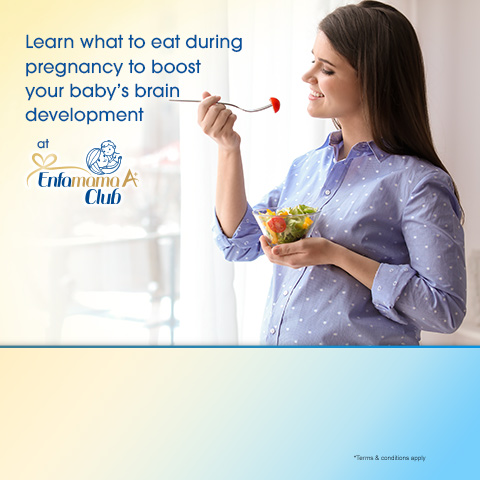The relationship between nutrition and brain development in toddlers
Do you wish you had the extraordinary power to delve into your toddler’s mind and view all the intriguing ways they make sense of the world? Where every discovery is a stepping stone to lifelong learning.
This article is a must-read if you have been struggling with a picky eater for a while. Explore ways to instil healthy food relationships in children, and uncover practical strategies to encourage a diverse and balanced diet while navigating the challenges of mealtime battles.
A picky eater toddler is an everyday challenge many parents and caregivers encounter. Those tiny food critics in the making can pose quite a struggle for parents and carers to attempt to placate! Every mealtime becomes a culinary adventure, with twists and turns, surprises, and disappointments.
Despite the occasional eye-rolling and sighs of resignation, navigating the world of picky eaters can also be fun for parents to get creative with clever food disguises, playful presentations, and dessert bribes. As children evolve and change, they often grow out of being picky eaters. During this time, tackle their picky eater phase with some of these suggestions.
1. Overview
2. Instilling healthy eating habits for kids
3. Conquering a mealtime picky eater
4. Nourishing your child's brain: Other factors to consider for healthy brain development
5. Frequently Asked Questions on Picky Eater

Instilling healthy eating habits for kids
Toddlers are like little sponges. They have the ability to soak up everything around them. From learning new words to discovering the wonders of the world, your child’s brains are constantly buzzing with activity. It's pretty common for toddlers and preschoolers to be picky eaters. They can be really stubborn about certain foods, only wanting to eat their favourites or refusing to try new things. But here's the good news: most kids grow out of this picky eating stage eventually and start exploring a wider range of foods. So, if you're dealing with a picky eater at home, just remember that it's a normal part of their development, and with time, they'll likely become more adventurous eaters.1
Nourishing your toddler's developing brain by incorporating proper nutrition and instilling healthy eating habits is key to getting them the boost they need. When it comes to brain-boosting foods for kids, there are some fantastic options that can support healthy brain development and function. Healthy food groups such as carbohydrates, protein, fruits, and fibre are important for your child’s developing needs.2
The right brain food for kids refers to the types of foods that are altogether rich in nutrition and support healthy brain development and function. These foods are packed with essential nutrients like omega-3 fatty acids, antioxidants, vitamins, and minerals that are crucial for healthy brain growth and developing good cognitive function.2
Conquering a mealtime picky eater
Picky eating can be frustrating and upsetting for parents, as it may affect a child's overall nutrition and growth.4 There are many ways to try and coax your little picky child to eat the right food and develop better habits for kids. Here are some unconventional ways to make that mealtime maze more fun and engaging for your child:5
- "Food Dance Party": Turn on some upbeat music and host a "food dance party" to make mealtime enjoyable and engaging. Encourage your kid to experiment with new meals and to dance joyfully after each successful bite. The smiles and beats will undoubtedly foster pleasant associations with food and make digesting fun for the kids!
- "Gut Explorer": Make a "gut explorer" game where your kid will be a daring wayfarer travelling through their stomach related framework. Utilise innovative storytelling to make sense of how various food varieties fuel their bodies step by step and help their stomachs. This can make learning about absorption an intriguing experience that empowers good dieting habits.
- "Bugs on a Plate": Play with their imagination and call gut-friendly dishes "bugs on a plate." For instance, blueberries might be "gut-loving berries," broccoli can be "little green trees," and yoghurt can be a "probiotic power-up." Using a lighthearted approach might help your picky eater toddler become more interested in eating healthy meals and inspire them to try new things.
- "Rainbow Plate Challenge": Turn mealtime into a colourful challenge by encouraging your child to create a rainbow on their plate. Challenge them to include foods of different food groups and corresponding colours in each meal, such as red strawberries, orange carrots, yellow bananas, green spinach, blueberries, and purple grapes. This can make healthy eating habits for kids a fun game and promote a diverse and nutritious diet.
- "Smoothie Masterchef": Involve your child in making their own gut-healthy smoothies. Set up a "Smoothie Masterchef" station with a variety of fruits, veggies, and yoghurt, and let your child become the master of their own concoctions. They can blend and taste-test different combinations, creating their own signature smoothie recipe. This can be a creative and fun way to introduce new ingredients and boost gut health.
While these suggestions are lighthearted and fun, it's important to ensure that a child's diet is well-balanced and meets their age-specific nutritional needs. Always consult with a healthcare professional for personalised advice on improving your child's gut health.
Nourishing your child's brain: Other factors to consider for healthy brain development
Give your little picky eater the best start in life by providing them with foods containing essential nutrients that can help their developing cognitive abilities and set them up with better health. Meals supplemented with essential nutrients can act as great brain food for kids to support their learning potential.6
Research has shown that children who consume a balanced overall nutrient intake, including adequate amounts of DHA⁷ª (docosahexaenoic acid), choline⁷ˢ, and MFGM⁷ˣ (milk fat globule membrane), can benefit from their positive effects on cognitive development and overall health⁷.
In conclusion, the important thing to keep in mind is that happy eating is healthy eating. Children who like and are content with their meals tend to eat better, which makes managing a picky eater that much simpler for you.
Join the Enfamama A+ Club today for free samples and learn tips to improve your child's eating habits and digestive development with exclusive club content, plus other amazing club benefits!
Frequently Asked Questions on Picky Eater
Here are some Frequently Asked Questions (FAQs) answered by our expert panel of HCPs:
-
What causes picky eating in children?
There is no universally accepted definition or cause of fussy eating. However, generally, it refers to the temperamental behaviour around food – refusing new food, only requesting to eat their favourite foods, or unwillingness to eat their familiar food on other days.8
-
Is picky eating a normal phase of development?
Yes, picky eating is commonly seen as a normal phase of development in children. However, it's important to monitor their growth and nutritional intake during this phase. 9
-
How can I encourage my picky eater to try new foods?
Make mealtimes your happy times together. Allow your child to feed themselves, explore their food and decide when they’ve had enough. Sign up here to get meal plan recipes for different types of picky eater.10
-
What if my child consistently refuses to eat certain foods?
Changing how you serve food may make it more appealing. For example, your child might refuse cooked carrots but enjoy raw grated carrots. Experimenting is key. 11
-
When should I seek professional help for my picky eater?
If your child's picky eating habits significantly impact their growth, nutritional status, or cause excessive stress, it is advisable to consult a healthcare professional for guidance.
Expert Resource:
Regina Victoria Boyles, MD
Paediatrician
Manila Doctors Hospital
Recommended articles:
- Picky Eating
- Help! My Toddler Is a Picky Eater!
- Toddler Food Recipe Favourites for Picky Eaters
- What kind of picky eater is your child?
- Is your child a fussy eater? Learn how you can make sure they’re able to meet their nutritional needs with these helpful tips for daily food consumption.
-
Family Health Service Hong Kong. What can I do with my picky eating child.https://www.fhs.gov.hk/english/health_info/child/20033.html Accessed on 12 April 2022
- The crucial brain foods all children need. Jan 23, 2018. By Claire McCarthy, MD, Senior Faculty Editor, Harvard Health Publishing https://www.health.harvard.edu/blog/brain-food-children-nutrition-2018012313168
-
Better Health Channel. Toddlers and Fussy Eating. https://www.betterhealth.vic.gov.au/health/healthyliving/toddlers-and-fussy-eatingAccessed on 12 April 2022
-
Benioff Children’s Hospital. Picky Eaters. https://www.ucsfbenioffchildrens.org/education/picky-eatersAccessed on 12 April 2022
-
8 ways to make mealtimes more fun and engaging for your kids. Feb 08, 2023. https://onceuponafarmorganics.com/blogs/upon-a-blog/making-mealtime-fun
- 9 brain foods for kids. April 12, 2021. https://www.healthline.com/nutrition/brain-food-for-kids
-
The role of nutrition in children’s neurocognitive development, from pregnancy through childhood. 2013. https://www.ncbi.nlm.nih.gov/pmc/articles/PMC3607807/.
a. Brain foods for children:Fish and DHA. HealthXchange.sg 2021. https://www.healthxchange.sg/children/food-nutrition/brain-foods-children-fish-dha.
s. The Nutrition Source. Harvard T H Chan. March 2023. https://www.hsph.harvard.edu/nutritionsource/choline/#:~:text=Although%20foods%20rich%20in%20choline,%2C%20chicken%20breast%2C%20and%20legumes.
x. 3 ways MFGM improves childhood development. 2021. https://www.enfagrow.com.sg/articles/mfgm-and-early-childhood-development. -
7 Brain-Boosting Foods for Children. 28 Jan 2021. https://www.mountelizabeth.com.sg/health-plus/article/brain-foods-kids
- Picky Eaters. Picky Eater FAQ. Retrieved from https://nutricia.com.au/picky-eaters-faqs/
-
10 Tips for Parents of Picky Eaters. Retrieved from https://www.healthychildren.org/English/ages-stages/toddler/nutrition/Pages/Picky-Eaters.aspx
-
Fussy Eaters https://www.nhs.uk/conditions/baby/weaning-and-feeding/fussy-eaters/






